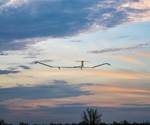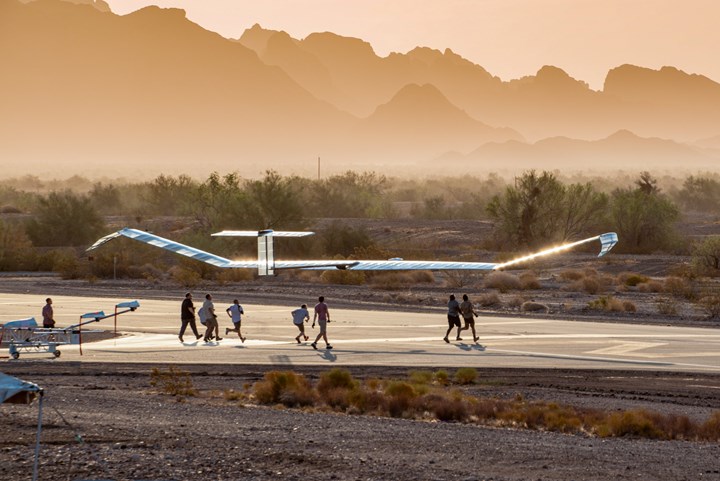Airbus, Salam join forces for HAPS connectivity services using composite Zephyr drone
The solar-powered, carbon-neutral unmanned aircraft system (UAS) will support and progress the development of digital connectivity in Saudi Arabia.
Airbus’ (Toulouse, France) high altitude platform system (HAPS) Connectivity Business has signed a strategic partnership with Salam (previously ICT), a Saudi Arabian telecommunications provider and part of the Mawarid Media & Communications Group (MMCG), to progress the development of private networks, Internet of Thing (IoT) applications, disaster management solutions and other connectivity and high-altitude Earth observation services from the stratosphere to serve the kingdom of Saudi Arabia.
Zephyr, a high-altitude unmanned aircraft system (UAS) drone, developed by Airbus in collaboration with the U.S. Army, is a solar-powered HAPS solution that will reportedly provide low-latency, direct-to-device 5G connectivity services, in addition to persistent high-resolution imaging and live-video, delivered from the stratosphere (see “Airbus successfully completes 2021 summer test flights for Zephyr HAPS satellite aircraft”). A wingspan of 82 feet and a carbon fiber composite fuselage enable it to carry payloads “of up to 50 pounds at altitudes of 70,000 feet.” Airbus believes that Zephyr will support in bridging the digital divide and will bring connectivity services to those who are currently unserved or underserved from a solar-powered and carbon-neutral platform.
“We see in Airbus’ Zephyr platform a key asset to provide private network services, IoT solutions as well as civil, governmental and non-governmental applications,” Ahmad Al-Anqari, Salam CEO, explains. “There are numerous use cases for the platform’s capabilities and we look forward to this partnership with Airbus to serve the Saudi market in support of the kingdom’s vision 2030 goals.”
Related Content
-
Schrödinger advances materials informatics for faster development of next-gen composites
Cutting time to market by multiple orders of magnitude, machine learning and physics-based approaches are combined to open new possibilities for innovations in biomaterials, fire-resistant composites, space applications, hydrogen tanks and more.
-
Modular, robotic cells enable high-rate RTM using any material format
Airborne’s automated ply placement systems at Airbus, GKN Aerospace and Teijin Automotive Technologies aim to maximize flexibility and intelligent automation.
-
Com&Sens presents workshop on fiber optic sensing for COPVs
Three-day hands-on workshop from June 11-13 in Leuven, Belgium, will equip participants with a better understanding of fiber optic sensing technology for digital manufacturing of composite tanks.














